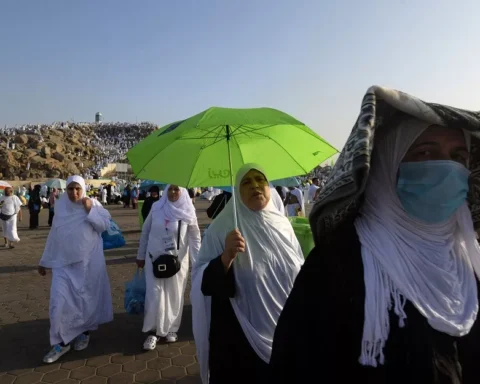Key Public Health Advisories Ahead of Eidul Azha
1. Crimean-Congo Hemorrhagic Fever (CCHF) Alert
- High Fatality Rate (10-40%): CCHF is a severe viral disease causing hemorrhagic fever, with sporadic cases reported in Pakistan since 1976.
- Transmission Risks:
- Tick bites from livestock.
- Contact with infected animal blood/tissues during slaughter (major concern around Eidul Azha).
- Human-to-human spread via bodily fluids.
- Hotspot: Balochistan (due to cross-border animal movement).
2. Heatstroke Warning Amid Heatwave
- Rising Risks: Climate change has intensified heatwaves, increasing heatstroke cases.
- Symptoms:
- Hot, dry skin or excessive sweating.
- High fever, confusion, slurred speech, weakness.
- Severe Consequences: Untreated cases can cause organ failure or death.
Preventive Measures Urged
- For CCHF:
- Use protective gear (gloves, masks) when handling livestock.
- Avoid tick-infested areas, ensure animal inspections before slaughter.
- For Heatstroke:
- Stay hydrated, avoid direct sun exposure.
- Recognize early symptoms and seek immediate cooling/medical help.
Government Action
- NIH directs health departments (provinces, AJK, GB, Islamabad) to:
- Implement SOPs for disease control.
- Launch public awareness campaigns on safety measures.
With Eidul Azha coinciding with extreme heat, adherence to NIH guidelines is critical to prevent CCHF outbreaks and heat-related emergencies. Public vigilance, proper animal handling, and heatstroke precautions can save lives. Authorities must ensure timely interventions to mitigate health risks during the holiday period.






